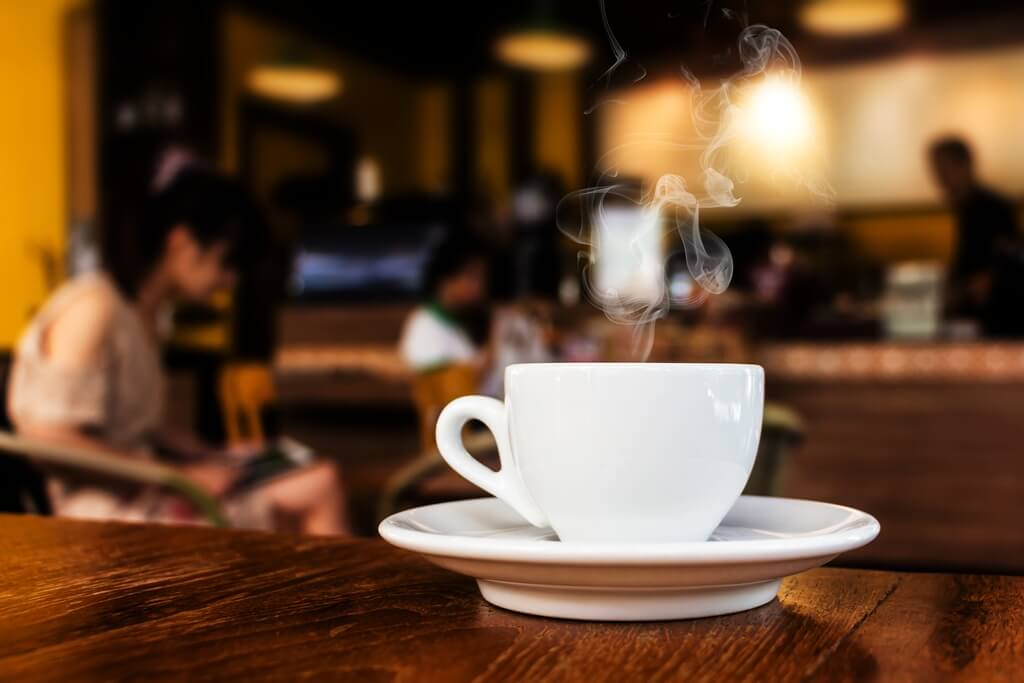For a city on the rise, it seems appropriate that alongside retail, restaurants and commercial renovation, coffeehouses are among the top hot spots around Detroit’s neighborhoods.
These caffeine-fueled developments are new and old – longstanding and still in the development stages. Lots of sites are popping up across our city, building new spaces as well as filling empty storefronts in neighborhoods such as Woodbridge, Eight Mile, Sherwood Forrest, Grandmont Rosedale, Midtown and more. The owners range in age as well from recent college graduates to mid-career professionals to retirees.

Motor City Java House
These coffee houses serve more than just warm beverages and snacks. They will serve as proverbial stakes in the ground, city observers say. They have the potential to transform the neighborhoods in a number of ways, especially economically. Having an established spot to hold meetings, hang out with friends or gather as a community has the ability to boost a block’s redevelopment.
More importantly, having such a gathering spot fosters a “robust” social culture in Detroit, something that establishes strong ties between neighbors, creates conversation between strangers and sets a tone for how the city will develop in the months and years to come, observers agree.
“The city’s coffee shops are where I automatically think to meet people or bring newcomers to Detroit,” says Jen Evans, a regular at Detroit shops known for serving as convivial “city living rooms” such as Sister Pie, Café Con Leche and even the Kresge Court within the Detroit Institute of Arts. She’s even stopped by coffee shops inside corporate headquarters, including Quicken Loans and DTE Energy.

Ann Perrault with business partner Jackie Victor. Photo courtesy Avalon Bread
Detroit’s coffee shops can define an area. Places like Avalon International Breads are like landmarks for longtime city residents as well as occasional visitors. Avalon is the kind of place where you feel comfortable sitting inside or outside, enjoying a cup of coffee alongside one of its signature baked good and a bag of bread to take home.
There are sophomore success stories, such as Detroit Vintage Coffee Shopalong Eight Mile. Its owner, Pam Duvall, has served coffee to her customers since 1989. The shop west of Wyoming Street owns a piece of her heart because her grandparents built this shopping center, which has Vintage Coffee and several small retail shops alongside of it.
Duvall describes Vintage Coffee as a place where people can kick back, relax, read one of the many books she has scattered around the eclectic shop or sit a spell at the many chairs, tables and couches she provides. Her goal, she says, is to take customers “back to their grandparents’ home.”
Detroit, despite its large size, truly is a “close-knit community,” Duvall says. “People have lived in this area for a long time; it’s not an area with a lot of turnover” so they need places to gather. A coffee shop serves that purpose and so much more. It’s like a stage where all of the players come together as part of the city’s resurgence, she says.

Detroit Vintage Coffee Shop on Eight Mile Road
Having open, public spaces where people can break bread together are essential to rebuilding Detroit. That is part of the reason why Will Leather added a coffee shop to its sizable retail store in Midtown. The former Tomboy grocery store at 4120 2nd Avenue has everything you’d want from a coffee shop: flexible seating (both small tables and larger areas perfect for groups or meetings), fast Wi-Fi and an open-door policy.
Detroiters can come in, sit in the well-appointed leather chairs, within the sizable tee-pee in the middle or in the gallery to talk, to collaborate, to discuss next steps. These spaces are open to the public both to enjoy and to use as needed, owner William Adler says, hopeful that his old hometown will not only buy his goods but accept his hospitality.
“One of the tenets of (Will Leather) as an organization is that we wanted this to be a place for inspiration,” says Cafe Manager Milo Leffler. “If it’s a group looking for a meeting, small businesses that need a place to come together or a student group that wants some space, we want them to know that we’re open to them as a gathering place.”
Places including Will Leather are advertising their space, event offerings and educational classes as a way of building word of mouth about what they can offer Detroit and its neighborhoods. For example, Will Detroit has a “Coffee Club” every third Saturday of the month where people can try different coffee roasts, learn about the brew and hang out together.
Leffler says Will Leather also is adding other community draws such as a ping-pong table and an outdoor patio to draw people within walking distance to their coffee house and retail store. “We want people to feel like this is their place,” Leffler says.

Jordi Carbonell of Café Con Leche
That is the goal of two other Detroit coffee entrepreneurs with their future shop. Woodbridge Bikes and Coffee is an up-and-coming bike repair and coffee bar started by Benjamin Kehoe and Jonathan Colo. Their goal is to have a neighborhood spot for not only bike commuters but everyone within a few blocks, giving the neighborhood a coffee-fueled destination to call their own.
The duo, graduates of the business incubator and educational program Build Institute, recently received a Motor City Match grant to help with the build out. They hope to open Woodbridge Bikes and Coffee within the next 12 months.
“We’re going to be a part of a redevelopment that takes an empty building and turns it into six different businesses,” Colo says. “It’s an area that lacks a walkable coffee shop, and the neighborhood and the neighbors truly want this. They want a neighborhood coffee shop.”


